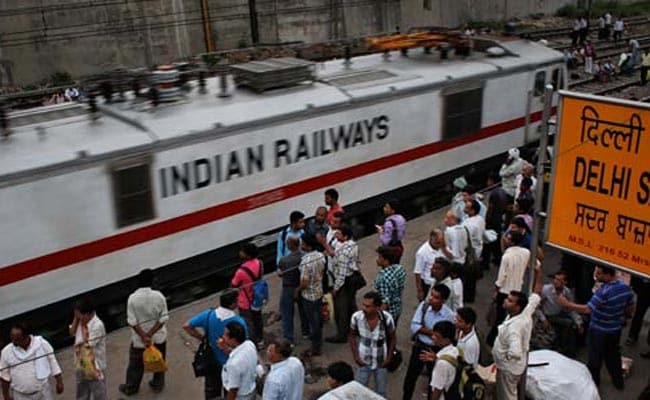
Google has tied up with Railways to bring high-speed wireless access at railway stations.
- Google has tied up with railways to bring high-speed wireless in stations
- Company said that passenger response has been phenomenal
- 100,000 users used the network within a week of launch at Mumbai Central
Did our AI summary help?
Let us know.
New Delhi:
Nearly two million Indians are using high-speed Wi-Fi services at 23 railway stations across the country that Google provided as part of its project, the technology giant revealed on Friday.
Speaking during Google-owned multinational conglomerate Alphabet's 2016 second quarter earnings call, India-born CEO Sunder Pichai said that Google is with Indian Railways and RailTel to bring high-speed wireless access to millions of people who use railway stations.
"There are already two million people logging in every month. They are using as much as 15 times the data that they would otherwise use in a full day on their cellular networks." Mr Pichai said.
Owned by Indian Railways, RailTel focuses on providing broadband and virtual private network (VPN) services.
Last month, on the occasion of the inaugural World Wi-Fi Day by the Wireless Broadband Alliance that aims to provide a platform to help bridge the digital divide, Google celebrated the success of its project with Railtel to provide high speed Wi-Fi at railway stations across India.
The company initially rolled out the network at four of India's largest stations - Sealdah, Lucknow Junction, Lucknow City and Gorakhpur Junction.
The company had said while they are only at approximately 20 per cent of the roll-out schedule for this year, the response has been phenomenal.
"We saw 100,000 users connect to the network within a week of launch at Mumbai Central and as we started rolling out the network at more stations, we saw exponential jump in the consumption of the network," the company wrote in a blog post.
"Users in tier 2 cities latched onto the network with more enthusiasm and we saw much higher consumption of data in tier 2 cities, where access to high-speed broadband is more challenging," Google added.
Speaking during Google-owned multinational conglomerate Alphabet's 2016 second quarter earnings call, India-born CEO Sunder Pichai said that Google is with Indian Railways and RailTel to bring high-speed wireless access to millions of people who use railway stations.
"There are already two million people logging in every month. They are using as much as 15 times the data that they would otherwise use in a full day on their cellular networks." Mr Pichai said.
Owned by Indian Railways, RailTel focuses on providing broadband and virtual private network (VPN) services.
Last month, on the occasion of the inaugural World Wi-Fi Day by the Wireless Broadband Alliance that aims to provide a platform to help bridge the digital divide, Google celebrated the success of its project with Railtel to provide high speed Wi-Fi at railway stations across India.
The company initially rolled out the network at four of India's largest stations - Sealdah, Lucknow Junction, Lucknow City and Gorakhpur Junction.
The company had said while they are only at approximately 20 per cent of the roll-out schedule for this year, the response has been phenomenal.
"We saw 100,000 users connect to the network within a week of launch at Mumbai Central and as we started rolling out the network at more stations, we saw exponential jump in the consumption of the network," the company wrote in a blog post.
"Users in tier 2 cities latched onto the network with more enthusiasm and we saw much higher consumption of data in tier 2 cities, where access to high-speed broadband is more challenging," Google added.
Track Latest News Live on NDTV.com and get news updates from India and around the world

